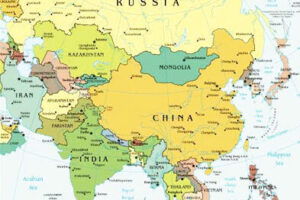RIA Novosti : “Russian envoy: Raised focus on relations with China predates Western sanctions”

(RIA Novosti – December 8, 2015)
Russian ambassador to the People’s Republic of China Andrey Denisov has denied that Russia’s “eastward turn” – its visible attempt to improve relations with countries in the Asia-Pacific region, primarily China – was a response to the introduction of sanctions against Russia by several Western countries; rather, he said, it had been mooted over a decade earlier. His remarks were made during an exclusive interview with RIA Novosti (part of the state-owned International News Agency Rossiya Segodnya), published on its website on 8 December.
“The eastward turn is primarily a strategic choice taken by Russia, and is not at all linked with [Western] sanctions policy. In any case, it began a long time before the procession of sanctions descended upon us. Our government first seriously began talking about a turn to the East at some point around three years ago, when nobody was threatening us with sanctions,” he said.
“But if we go deeper, it began even earlier, at least at the beginning of the 2000s,” he added, pointing out that trade between Russia and China had almost trebled between 2005 and 2015.
Remarking on the effects of Western sanctions, the ambassador admitted that they had “unfavourably affected the development of our economy”; however, he added, they have also “stimulated our more attentive attitude to the opportunities available on the Eastern markets”. He pointed to the energy and agriculture sectors as areas in which sanctions had had the greatest effect on Russian policy in regards to cooperation with China. “I repeat, we developed and still develop cooperation with our Chinese partners in these areas without sanctions in mind, but the absurd sanctions pressure from the West, of course, stimulated this cooperation,” he clarified.
Denisov also commented on the deployment of US Navy destroyers in the South China Sea. “We call for territorial disputes to be resolved, first of all, exclusively by political and diplomatic means, not only without the use of force, but also without its demonstration. Secondly, on the basis of international law. And thirdly, amongst the directly-involved sides themselves.”
“Russia’s position applies not only to the South China Sea issue, but to various types of territorial dispute in general, of which there are many in the world,” he noted. He added that “increased US military power is, of course, an unpleasant factor for us”, as “in future this may create a real military threat”.
“I must say that our American neighbours’ policy on the Pacific ring represents a surprising combination of ‘dove of peace’ rhetoric and very aggressive activities in practice,” he said.
